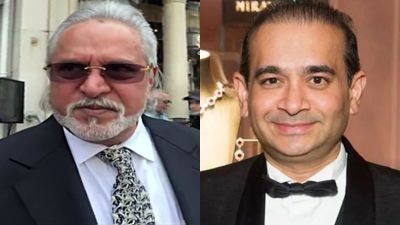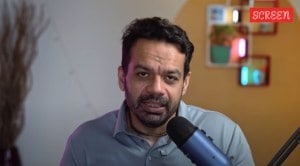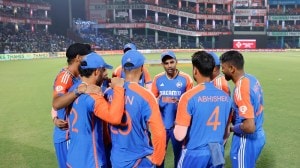MGS Narayanan, ex-ICHR chairman who offered a new perspective on Kerala’s history, no more
An illuminating cultural figure in the state in the recent decades, Narayanan had brought a major shift in the way history is being taught and read.
 Narayanan conducted extensive research on Kerala’s history, offering a new perspective and interpretation, and authored several works, including on the state’s Aryanisation. (Photo: X)
Narayanan conducted extensive research on Kerala’s history, offering a new perspective and interpretation, and authored several works, including on the state’s Aryanisation. (Photo: X)Renowned historian, author and former chairperson of the Indian Council of Historical Research (ICHR) Dr M G S Narayanan died at his residence in Kozhikode Saturday. He was 92.
Muttayil Govidamenon Sankara Narayanan, who was known as MGS, leaves behind a rich legacy as an eminent academician, prolific author, and pioneering historian who had brought a paradigm shift, a new perspective and interpretation in historiography of south India, particularly Kerala.
An illuminating cultural figure in the state in the recent decades, Narayanan had brought a major shift in the way history is being taught and read. He was of the view that there is no unquestionable perspective in history. Among his books was ‘10 false stories of Kerala history (Keralacharithrathile 10 Kallakkathakal)’.
A native of Ponnani in Malappuram, Narayanan began his career as a faculty at Guruvayurappan College in Kozhikode after obtaining masters in history. In 1968, he joined the University of Calicut as a lecturer and headed the history department from 1970 till his retirement in 1992. Apart from building a career in academics at the University, Narayanan he had been instrumental in establishing a specialised library and a museum of Kerala History and Culture, and launching several academic initiatives. That period also marked Narayanan serving as visiting faculty at several national and international academic centres.
Closely associated with the Indian History Congress from the late 196Os, Narayaan had been involved in establishing the South Indian History Congress, Epigraphical Society of India, and Place Name Society of India.
Narayanan had authored several books, and his 1972 doctoral thesis, the ‘Political and Social Conditions of Kerala under Kulasekhara Empire’, was published as a book in 2013. Called ‘Perumals of Kerala’, the book delves into the history of Kerala during the days of the Cera kingdom of Mahodayapuram or Makotai (800-1124 CE).
Some of his research papers have been compiled as ‘Cultural Symbiosis in Kerala’, ‘Aspects of Aryanisation in Kerala’, ‘Re-interpretations in South Indian History’, and ‘Foundations of South Indian Society and Culture’.
Narayanan’s contributions are not limited to history but also to epigraphy, an area in which he had thorough knowledge. It helped him analyse inscriptions in various scripts, shedding insights into the history of Kerala. He had also studied ancient scripts like Brahmi, Vattezhuttu and Grantha, and Tamil and Sanskrit languages, which helped him in understanding history from inscriptions.
In 2001, the then National Democratic Alliance government at the Centre appointed Narayanan as the chairperson of the ICHR. But that innings was turbulent, and he had locked horns with then MHRD Minister Murali Manohar Joshi after he alleged that the ministry was promoting the Sangh Parivar’s agenda in history. In 2003, he was sacked as the chairperson.
In his condolence message, Chief Minister Pinarayi Vijayan said Narayan stands apart as a historian on account of “his honest, comprehensive and scientific narration” of historical documents. “He had made invaluable contributions to Indian historical research. He was trail blazer and many historians who came later travelled that path. At one point, he expressed strong disagreement with the Left. He later took a strong stand against the pressure from the right-wing to surrender history writing to narrow interests, Vijayan said.







